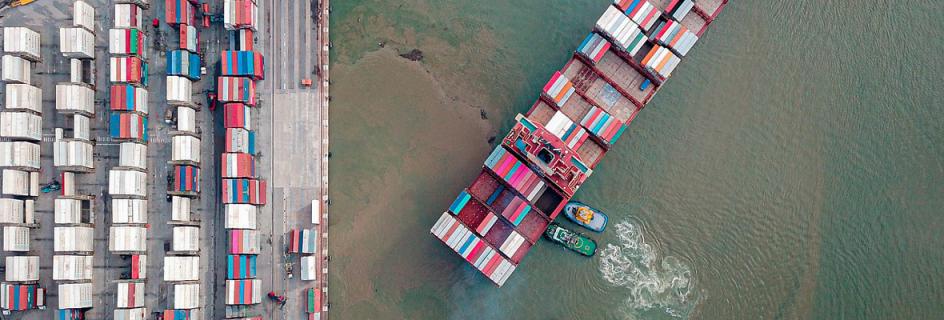Post date:
The Decarbonising the UK’s Freight Transport Network brings together over forty academic and industry partners, led by University College London's (UCL) Energy Institute.
The coalition includes three academics from our School who are representing the University of Edinburgh: Dr Ignazio Maria Viola (Co-Investigator), Professor Steve Finney and Professor Markus Müller – all from the Institute for Energy Systems (IES).
Network aims
The network will run for three years and aims to:
- distil current knowledge around freight-decarbonisation
- tackle key research challenges and obstacles
- unleash significant targeted investment
- guide policy to enable the decarbonising of the freight industry
The initiative also seeks to prepare the wider industry for freight-decarbonisation by commissioning wide-ranging projects, from the use of data to enable investment, to the pathways for moving freight transport’s energy and propulsion technology away from dependence on fossil fuel.
Cross-sector coalition
The Network, one of five new transport networks which received a £5m funding boost from UK Research and Innovation (UKRI), will foster a close-knit community focused on unlocking the next step in UK freight transport decarbonisation.
Building on five previous rounds of investment in this area, the network now has £2m funding from the UK Engineering and Physical Sciences Research Council (EPSRC) and backing from a number of industry partners, including BMT, Lloyds Register, Environmental Defense Fund, Chartered Institute of Logistics and Transport.
£400,000 of the funding has been allocated to feasibility projects to provide a rigorous and independent evidence base co-created by industry stakeholders and academia, alongside accompanying recommendations to accelerate investment. The network is actively inviting participation from interested stakeholders to inform the discussions and guide the research.
Challenges ahead
Dr Tristan Smith of UCL, who is leading the network, commented “freight transport, perhaps along with aviation, are sub-sectors which look likely to decarbonise whilst continuing to need an energy dense but non-fossil fuel. How they will do this remains unclear. So it is particularly exciting to be addressing that puzzle through the applied lens of ‘what research is needed to unlock necessary investment’, as well as bringing a broad coalition together than can help spot synergies between sectors (especially trucking and shipping), and between the under-researched interactions between domestic and international freight systems.”
The School's Dr Viola added: “this is an exciting project where we have the opportunity to re-think the UK's freight transport to dramatically decrease its carbon footprint and make it sustainable for the generations to come”.
Current network members include:
Academic partners: Newcastle University, University of Strathclyde, University of Oxford, University of Edinburgh, University of Westminster, University of Cambridge, Heriot-Watt University (Centre For Sustainable Road Freight),University of Plymouth, The University of Manchester, University of Southampton.
Industry partners: Argent Energy (UK) Ltd, BMT Group Ltd (UK), British Ports Association, Cargill Inc, Chalmers University of Technology, Chartered Institute of Logistics and Transport, Copenhagen Business School, Department for Transport, Environmental Defense Fund Europe, Fraunhofer Institute, Freight Transport Association Ltd, Future Proof Shipping, Global Maritime Forum, IMarEST, International Windship Association, Lloyd’s Register EMEA, Maritime Strategies International, Norsepower Oy Ltd, Norwegian School of Economics, Optrak Distribution Ltd, Shell, Smart Green Shipping Alliance, Stockholm Environment Institute, Sustainable Shipping Initiative, UK Chamber of Shipping, University of Antwerp, University of the South Pacific, WEGEMT.
Find out more
- University of Edinburgh contact: Dr Ignazio Maria Viola
- National contact: Dr Nishatabbas Rehmatulla, UCL Energy Institute, n.rehmatulla@ucl.ac.uk



